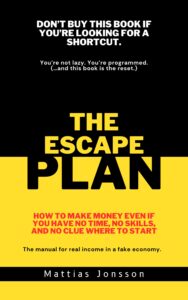I used to think that once I swapped my cubicle for a hammock, productivity would soar.
Picture it: surf at sunrise, a smoothie bowl by eight, client calls wrapped by noon, and a long afternoon writing session beside some turquoise infinity pool. Reality looked a little different.
Ever tried uploading a 200-meg file on Balinese Wi-Fi while a rooster screams in surround sound? Yeah—about that.
The romantic myth of the always-on traveler
Scroll Instagram for three minutes and you’ll see it: bronzed laptops on the beach, captions about “crushing deadlines from paradise.”
It’s intoxicating, but it’s also selective amnesia. Nobody posts the two-hour hunt for a power outlet or the e-sim that stops working the morning your proposal is due.
In Ho Chi Minh City, I once sprinted through monsoon rain looking for a café with both decent bandwidth and seats—by the time I found one, I was soaked, late for a Zoom call, and mentally fried before I’d written a single sentence.
The myth sells because it taps our craving for freedom; the trouble starts when we expect freedom to replace discipline rather than demand more of it.
The hidden productivity killers nobody talks about
According to Buffer’s State of Remote Work report, 11 percent of remote workers say “staying motivated” is their biggest struggle, and another 22 percent can’t unplug after hours.
More than 80 percent admit they still check email on weekends.
That’s not just a home-office problem; it’s steroids once you add time-zone chaos, visa runs, and the lure of cheap street food every ten steps.
Three culprits trip most nomads:
-
Cognitive overload. New city, new language, new SIM, new grocery store—your brain burns calories on logistics that used to be automatic.
-
Context switching. Client messages at 3 a.m., friends back home pinging at dinner, hostel roommates planning dawn hikes—your day fractures into confetti.
-
Loneliness disguised as freedom. When every relationship is temporary, you can spend entire days without meaningful conversation, which tanks motivation faster than a dead battery.
If any of that sounds familiar, congratulations—you’re normal.
The mindset shift: working with, not against, mobility
Productivity on the road isn’t about replicating office rhythms; it’s about designing guardrails that travel with you.
Early on, I believed I just needed better apps. Later, after too many half-done tasks, I realized the operating system lived in my habits, not my laptop.
The trick is to accept constraints instead of resenting them. Dodgy internet? Download reference material the night before. Tiny Airbnb? Treat it like a micro-office: mornings for deep work, afternoons for errands, evenings for social refuel.
When everything changes weekly, routine becomes the anchor, not the prison.
Tactics that work on any continent
Let’s get concrete. Below are the practices that survived Vietnam’s brownouts, Bangkok’s nightlife, and a month in rural Japan where the only café closed at four.
Calendar-blocking and ruthless time-boxing
Owl Labs found that 58 percent of workers now protect focused time by blocking their calendars.
I borrowed the idea and push it further: I batch all shallow tasks (invoices, email triage, flight searches) into a single afternoon slot. Everything else hides behind “Do Not Disturb.” It’s amazing how email loses urgency when it has to wait for its turn.
Asynchronous first, meetings last
GitLab’s 2,700-page public handbook forces teams to document every decision before they talk, making most meetings optional.
Impact is measured by results, not hours online. I’m a one-person shop, but the principle scales down. For any collaboration I ask: can this live in a shared doc with clear next steps? If yes, the call dies. My Zoom fatigue thanks me.
Single source of truth
I stole GitLab’s “handbook-first” ethos and built my own wiki—project briefs, client preferences, even the best coworking spots by city. When I land somewhere new, I’m not reinventing anything; I’m iterating. It’s boring, but boring beats panic at 1 a.m. when a client wants last year’s analytics.
Pre-commit your environment
Before booking accommodation, I check three things: Wi-Fi speed screenshots (ask hosts for them), distance to a gym, and walking time to a grocery store that sells real vegetables. If two of those three fail, I keep scrolling. Environment design beats willpower every time.
Micro-social rituals
Loneliness saps focus. In Chiang Mai, I joined a Wednesday night running club; in Kyoto, a Saturday language exchange. The groups changed, the ritual stayed. One stable social touchpoint per week kept me sane—and therefore productive.
Designing your personal road map
How do you turn these ideas into your own system?
-
Audit your energy, not just your hours. Track when you naturally hit flow. Build travel days and sightseeing around those windows, not inside them.
-
Pick one keystone habit per quarter. For me this quarter it’s 10k steps before breakfast. Everything else flexes, but the keystone locks in.
-
Automate repetition. Same grocery list, same Monday admin checklist, same folder structure per client. The less thinking on low-value tasks, the more juice for high-impact work.
-
Plan exits. Every city eventually stops serving your goals. Book your departure date when you arrive; it creates urgency and prevents drift.
I’ve mentioned this before but it bears repeating: freedom without structure becomes another cage—just one with prettier wallpaper.
Bringing it all together
Seven years in, I still chase new stamps in my passport, but I don’t chase the hustle illusion.
Productivity on the road isn’t about hacking the perfect morning routine or finding the mythical café that feels like a WeWork with coconut trees. It’s about accepting that movement amplifies whatever system you already have—good or bad.
So build the system first. Borrow the calendar-blocking, the async defaults, the handbook, the keystone habit. Then book the ticket.
And if a rooster starts a death-metal solo outside your window during a client demo? Mute button, deep breath, carry on. Paradise has its quirks—your process should be sturdy enough to laugh at them.

